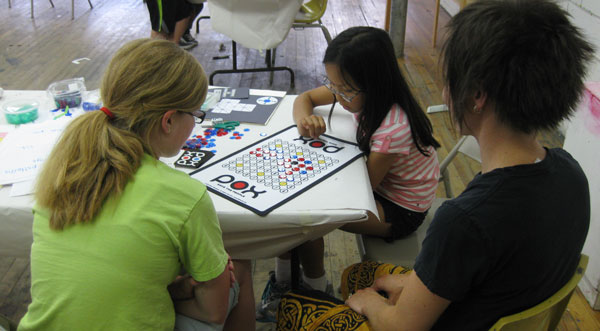AERA 2013!
Members of the Tiltfactor team attended the American Educational Research Association (AERA) Annual Meeting in San Francisco and presented research on games designed for our BIAS project!
Geoff introduced our work by discussing the goals of our lab and the theories behind our BIAS research. We then talked about our games Awkward Moment and buffalo and played a few rounds of each game with the audience. The attendees were receptive of our games and eagerly joined in to play! Geoff finished our discussion by presenting data to show that our games can help players think of themselves and others in ways that reduce the effects of implicit bias. The audience seemed particularly interested that we presented evidence of some transformation in players’ thinking – we love evidence-based research, too! We had a wonderful and engaged audience and thank them for attending our session and for their thoughtful questions about our work.

